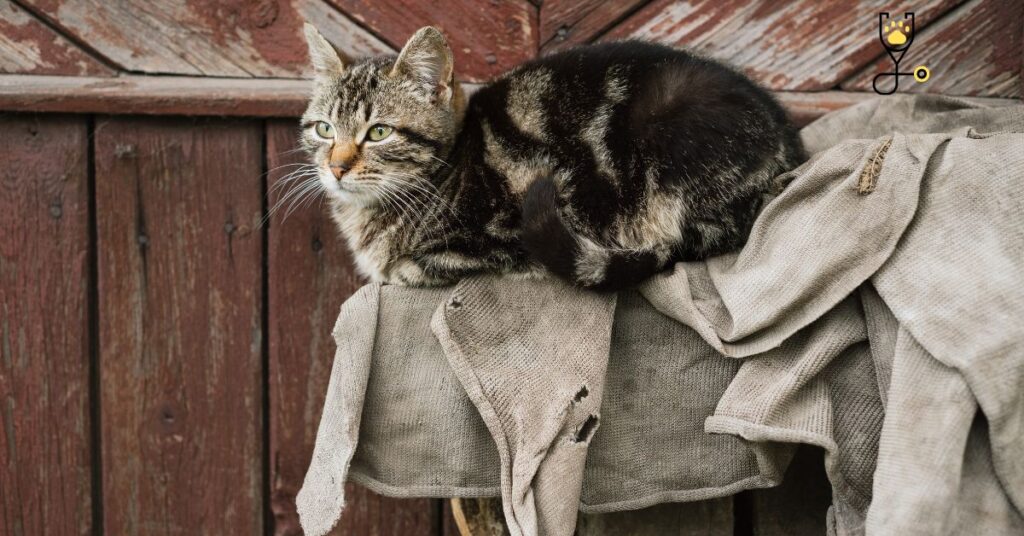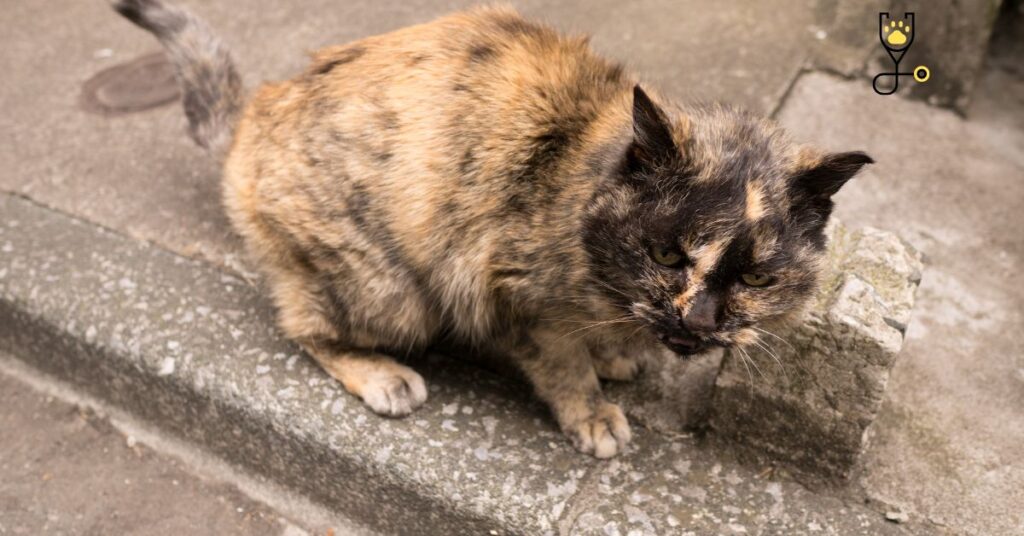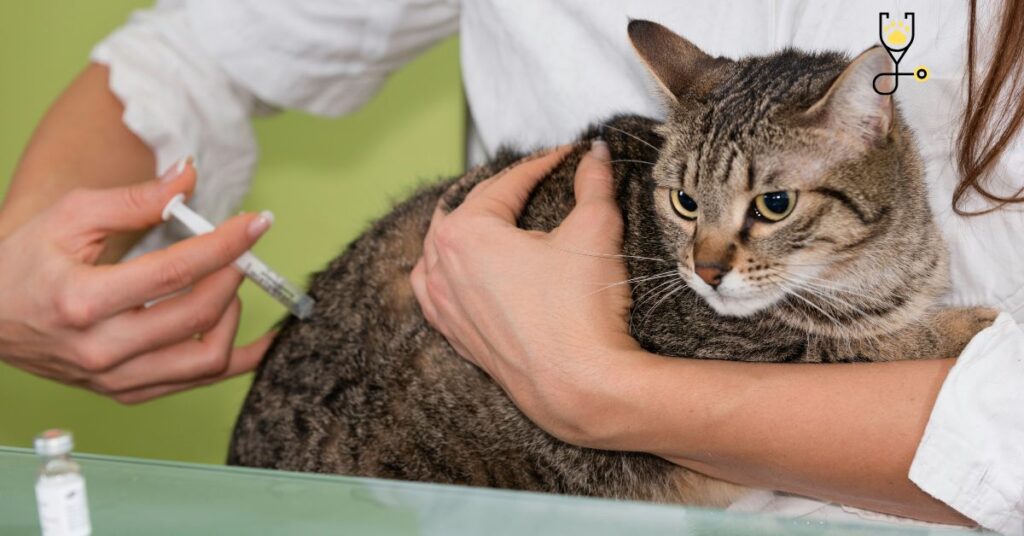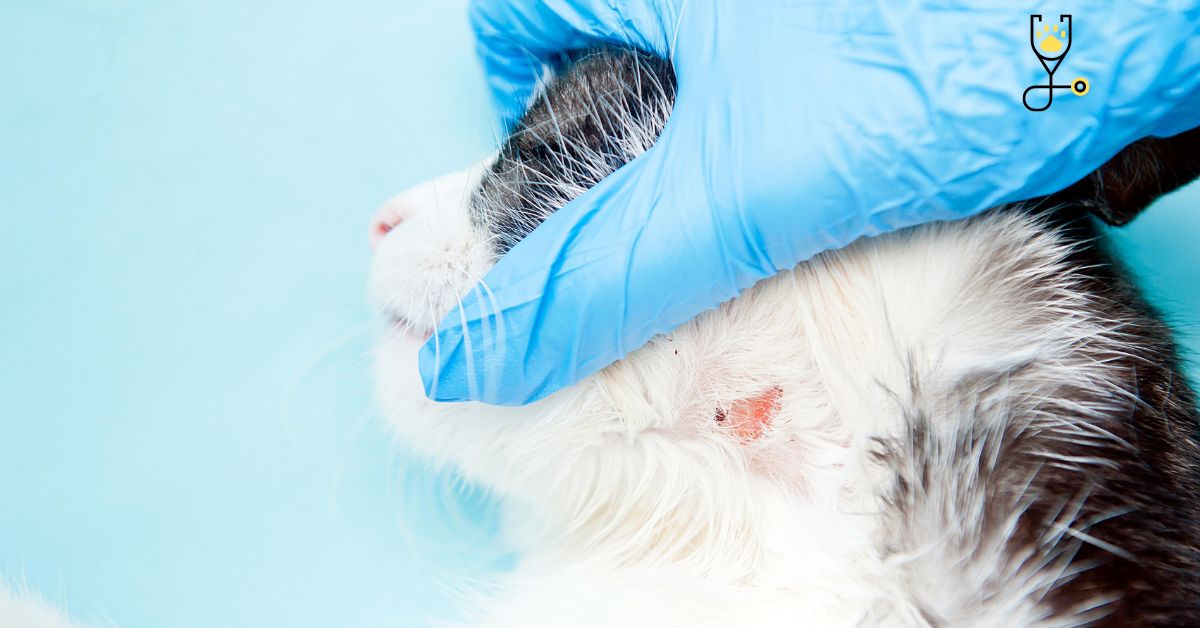If you’re a cat owner, then you should be aware of the risk of ringworm infection in cats. Ringworm is a fungal infection that can cause skin lesions and hair loss, and it’s not always easy to treat. In this blog post, we’ll discuss the causes, treatment, and prevention of ringworm in cats. We’ll also provide some tips for keeping your cat safe from this infection. So if you want to learn more about ringworm in cats, keep reading!
What is ringworm in cats?
Ringworm is a common fungal infection that can affect both humans and animals. The scientific name for ringworm is dermatophytosis, and it’s caused by a group of fungi called dermatophytes. These fungi live on the skin and hair of infected animals, and they can be passed from one animal to another. Ringworm is most commonly seen in cats, but it can also affect dogs, rabbits, and other animals.
What are the symptoms of ringworm in cats?
– Hair loss: One of the most common symptoms of ringworm is hair loss. The hair loss may be patchy or it may be widespread, and it’s usually accompanied by scaly skin

– Skin lesions: Ringworm can also cause raised, circular skin lesions. These lesions are often red and inflamed, and they may be itchy.
– Brittle nails: Another symptom of ringworm is brittle nails. The nails may become thickened, and discolored, or they may break easily.
– Other symptoms: In some cases, ringworm can also cause fever, tiredness, and loss of appetite.
– If you notice any of these symptoms in your cat, it’s important to take them to the vet as soon as possible for diagnosis and treatment.
Causes of ringworm in cats
There are several different ways that cats can contract ringworm, but the most common is through contact with an infected animal. Ringworm can also be passed from contaminated bedding or furniture, and it can be contracted from soil that’s contaminated with fungi. In some cases, ringworm can be passed from humans to cats, but this is relatively rare.
Risk factors for ringworm in cats
There are several factors that can increase your cat’s risk of developing ringworm, including – Age: Kittens and senior cats are more susceptible to ringworm than adult cats. – Immune system: Cats with a weakened immune system are more likely to develop ringworm.
– Contact with other animals: Cats that live in close quarters with other animals, or that frequently come into contact with other animals, are at increased risk of contracting ringworm.
– Lack of grooming: Cats that don’t groom themselves regularly are more likely to develop ringworm since the fungi can build up on the skin and hair.

– If you have a cat in any of these high-risk groups, it’s important to be vigilant for signs of ringworm.
Treatment of ringworm in cats
ringworm is a difficult infection to treat, and it often takes several weeks or even months of treatment to get rid of the infection completely. The most common treatment for ringworm is a topical antifungal medication, which is applied to the affected areas of the skin. In some cases, oral antifungal medication may also be necessary. In addition to medication, there are a few things you can do at home to help treat your cat’s ringworm:
– Keep the affected areas clean: Gently wash the affected areas with mild soap and cool water. This will help to remove any fungi that are present on the skin.
– Keep your cat isolated: If your cat has ringworm, it’s important to keep them isolated from other animals.
– Vacuum regularly: Vacuuming regularly will help to remove any fungi that are present in your home. Be sure to dispose of the vacuum bag after each use.
– Wash bedding and towels: Any bedding or towels that your cat has used should be washed in hot water.
– Ringworm is a difficult infection to treat, but with medication and good home care, most cats will make a full recovery.
Preventions of ringworm in cats
There are several things you can do to help prevent your cat from contracting ringworm:
– Keep your cat up to date on their vaccines: One of the best ways to prevent your cat from getting ringworm is to make sure they’re up to date on their vaccines.

– Avoid contact with other animals: If possible, avoid letting your cat come into contact with other animals. This is especially important if you know that another animal has a ringworm.
– Grooming: Be sure to groom your cat regularly. This will help to remove any fungi that are present on the skin.
– Cleanliness: Vacuum regularly and wash bedding and towels in hot water.
– By taking these precautions, you can help to prevent your cat from contracting ringworm. Ringworm is a difficult infection to treat, but with medication and good home care, most cats will make a full recovery.
Conclusion
Ringworm is a common infection in cats, but with proper treatment, most cats will make a full recovery. If you think your cat may have ringworm, be sure to contact your veterinarian as soon as possible.
FAQ’s
Ringworm is a fungal infection of the skin that is common in cats. The fungi that cause ringworm can live on the skin, in the environment, or on other animals.
The most common symptom of ringworm in cats is a circular patch of hair loss. The patch may be red, scaly, or have crusty lesions.
The most common treatment for ringworm is a topical antifungal medication, which is applied to the affected areas of the skin. In some cases, oral antifungal medication may also be necessary. In addition to medication, there are a few things you can do at home to help treat your cat’s ringworm, such as keeping the affected areas clean and vacuuming regularly.
There are several things you can do to help prevent your cat from contracting ringworm, such as keeping them up to date on their vaccines and avoiding contact with other animals.
If you think your cat may have ringworm, be sure to contact your veterinarian as soon as possible. Ringworm is a difficult infection to treat, but with proper treatment, most cats will make a full recovery. We hope you found this article helpful. If you have any further questions, please don’t hesitate to reach out to us. Thank you for reading!







